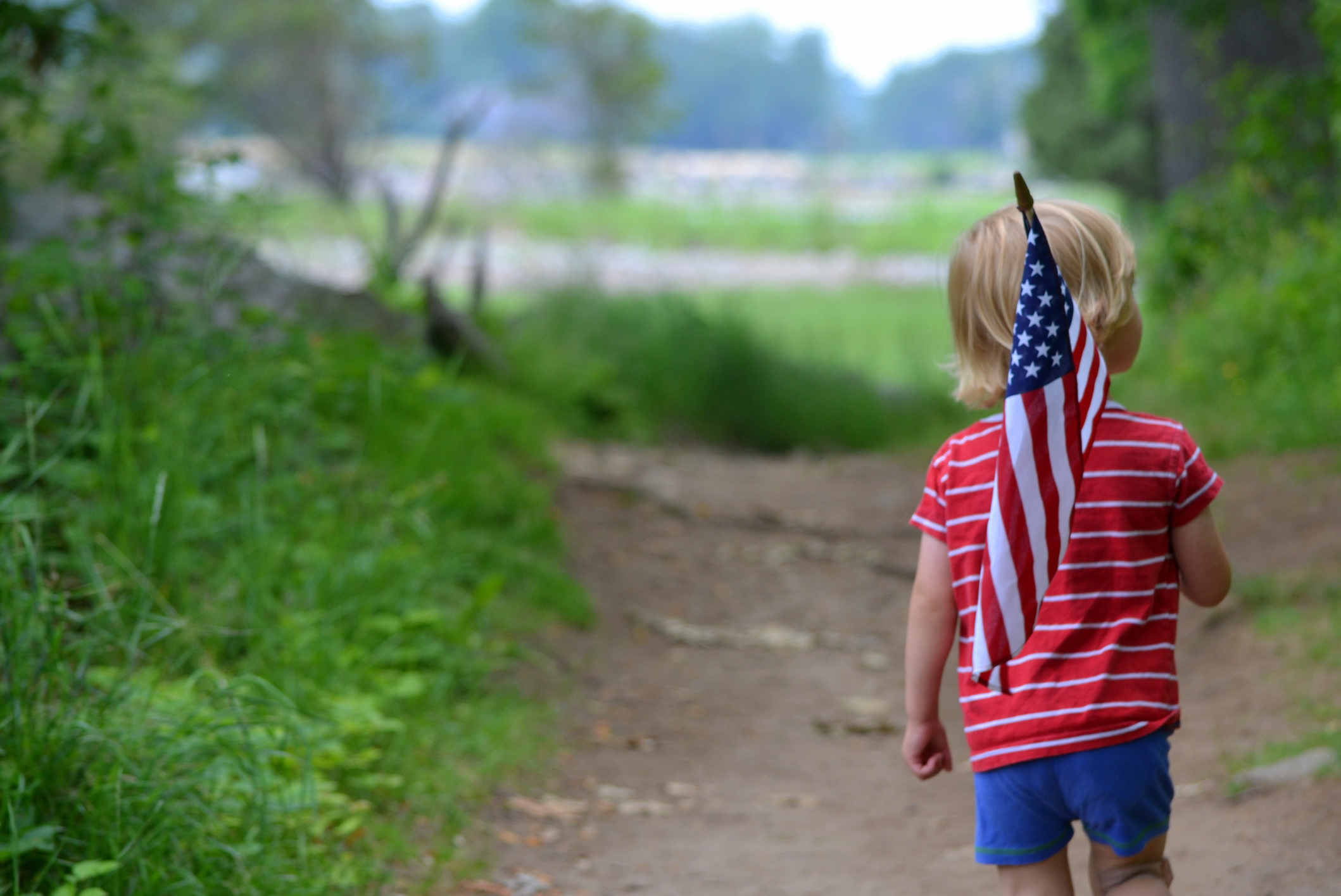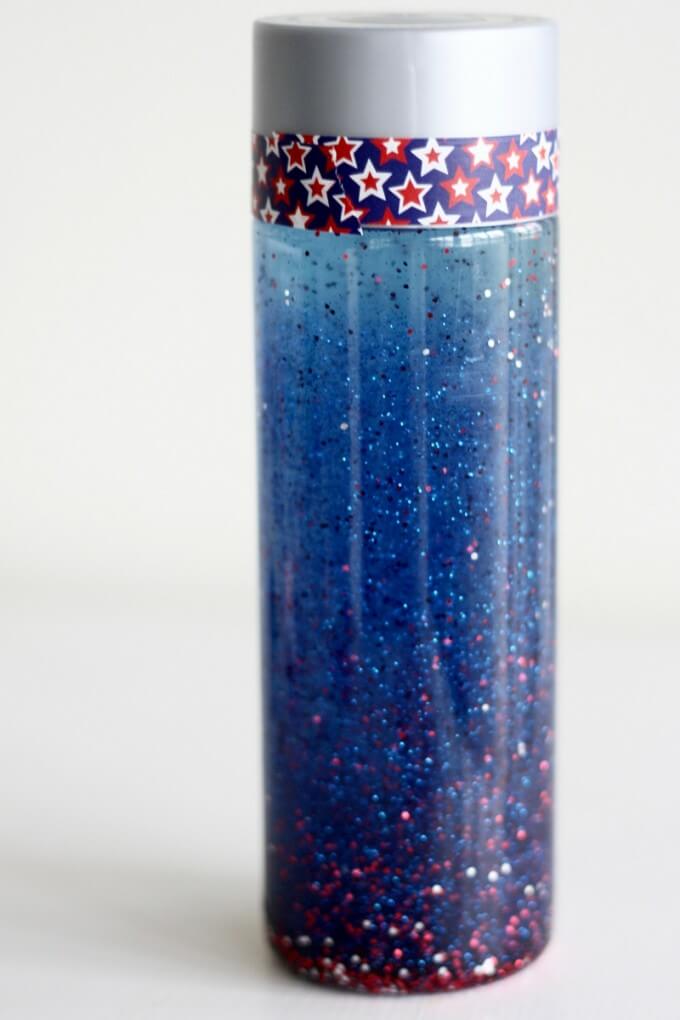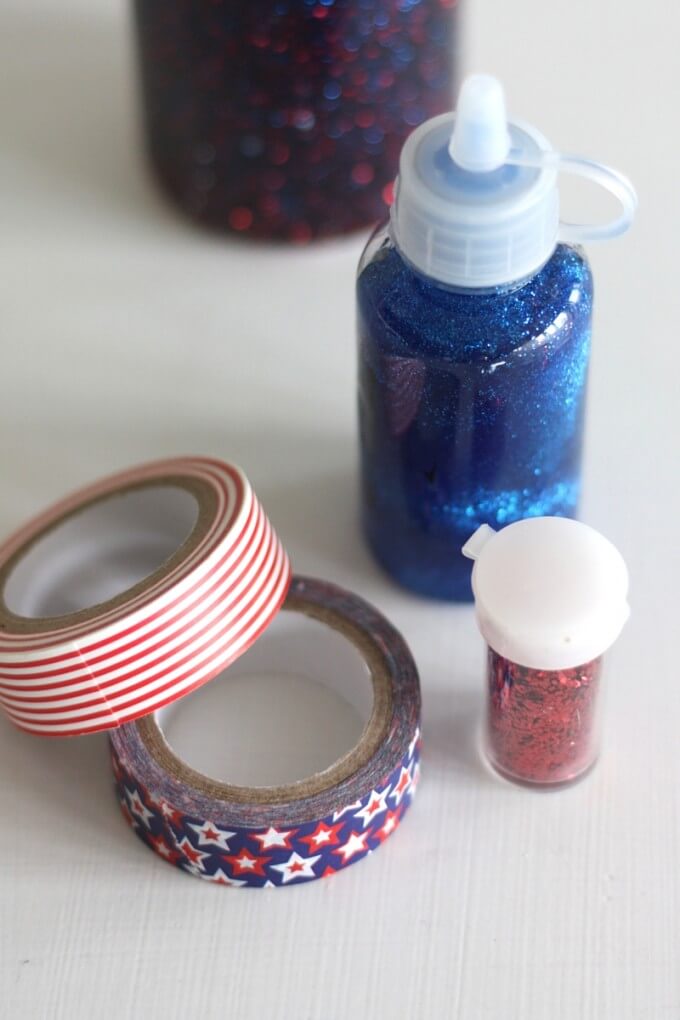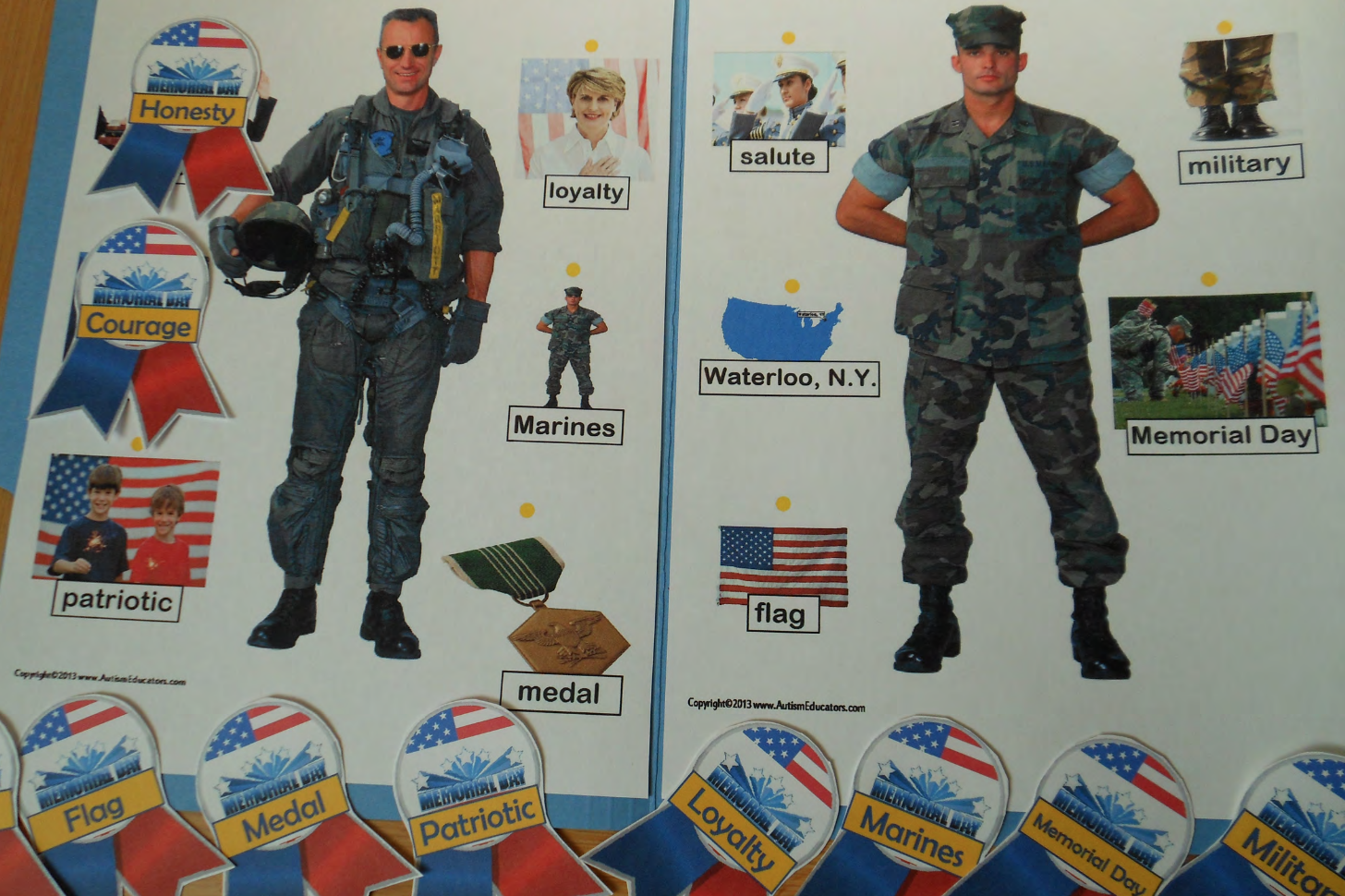For many students, Memorial Day marks the beginning of summer vacation. The weather is warm, flowers are blooming, and children can play free from the stress related to school.
Just like neurotypical children, children with autism love the fun and excitement surrounding national holidays. We’ve put together a few ideas for activities that you and your child can enjoy together while honoring the men and women who have fought for our country.
Kids with sensory difficulties will love these activities, too – they’re family-friendly and bound to make you and your child smile!
1. Help Your Child Make a Patriotic Sensory Craft
This patriotic sensory bottle craft was created by Little Bins for Little Hands, a website devoted to sensory play through STEM, art, slime, LEGO, and other crafts and activities.
Children with autism are strongly in tune with their senses and often enjoy having something to hold and look at for stimulation.
Your child will love shaking the bottle and watching the glitter swirl around in colorful twists. If they hold the bottle close to their ear, they may even be able to hear the glitter and water stirring around.
Here’s how to make a patriotic sensory bottle:
- Gather the supplies: One clear water bottle (the author recommends VOSS); water; blue glitter glue; red and silver glitter; patriotic craft tape.
Squeeze blue glitter glue into the bottle of water (if a used bottle, refill with tap water). Your child can add as much glitter glue as they’d like, but preferably no more than ¼ the size of the water bottle.
- Let your child add in the red and silver glitter. Children often go heavy-handed on this step, so it’s a good idea to watch closely to make sure they don’t empty the bottle.
- Put the cap back on the bottle and add a ring of decorative tape (stars and stripes or simple red, white, or blue) on the cap.
- Let your child shake the bottle vigorously to mix everything up.
That’s it! Patriotic sensory bottles are easy and fun to make, and your child can take their bottle with them wherever they go. If the bottle lasts until the 4th of July, even better!
2. Reflect on the Purpose of the Holiday With a Picture/Word Activity
It’s important for children to understand why they’re able to enjoy a day off of school at the end of May. This Memorial Day picture/word vocabulary file folder activity from Teachers Pay Teachers is a great way to teach your child reverence and respect for those who have protected them while teaching them related vocabulary words.
This digital resource is available for $1.75 on Teachers Pay Teachers, but you can make a physical replica if you so wish.
The activity features two photographs of real-life military figures surrounded by images with labels such as “patriotic,” “honesty,” “loyalty,” and “courage.” Your child will pin a “badge” with the matching definition onto the correct image, helping them learn vocabulary terms and understanding the values shared by the members of our country’s military.
3. Teach Your Kids How to Fly the Flag
This is a great activity for children to participate in, especially if they have sensory preferences. They can touch and feel the flag and will enjoy folding it at the end of the day.
The American flag is an important symbol of our country, and children will take part in the significance and tradition of raising the stars and stripes.

You can take time to practice the Pledge of Allegiance with your children and to salute the flag during the National Moment of Remembrance at 3 p.m. local time. Afterward, you can come up with ideas for how you and your children can honor service members going forward, not just on Memorial Day.
4. Spend Time Outside!
The end of May is a beautiful time, and if there’s pleasant weather, it’s a good idea to spend time outdoors with your family. Many children with autism prefer activities with lots of sensory stimulation (sight, sound, and touch), so a few great options are to build an obstacle course, visit the playground, go on a treasure hunt, have a picnic in the park, or break out the bikes and go for a ride.
 Listen to Our Podcast
Listen to Our Podcast


 Squeeze blue glitter glue into the bottle of water (if a used bottle, refill with tap water). Your child can add as much glitter glue as they’d like, but preferably no more than ¼ the size of the water bottle.
Squeeze blue glitter glue into the bottle of water (if a used bottle, refill with tap water). Your child can add as much glitter glue as they’d like, but preferably no more than ¼ the size of the water bottle.